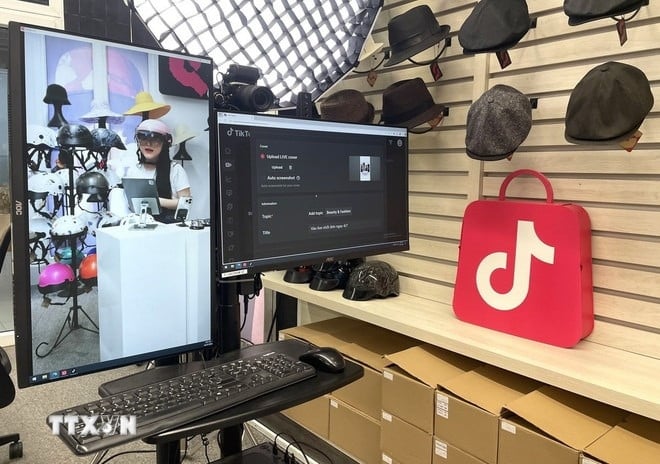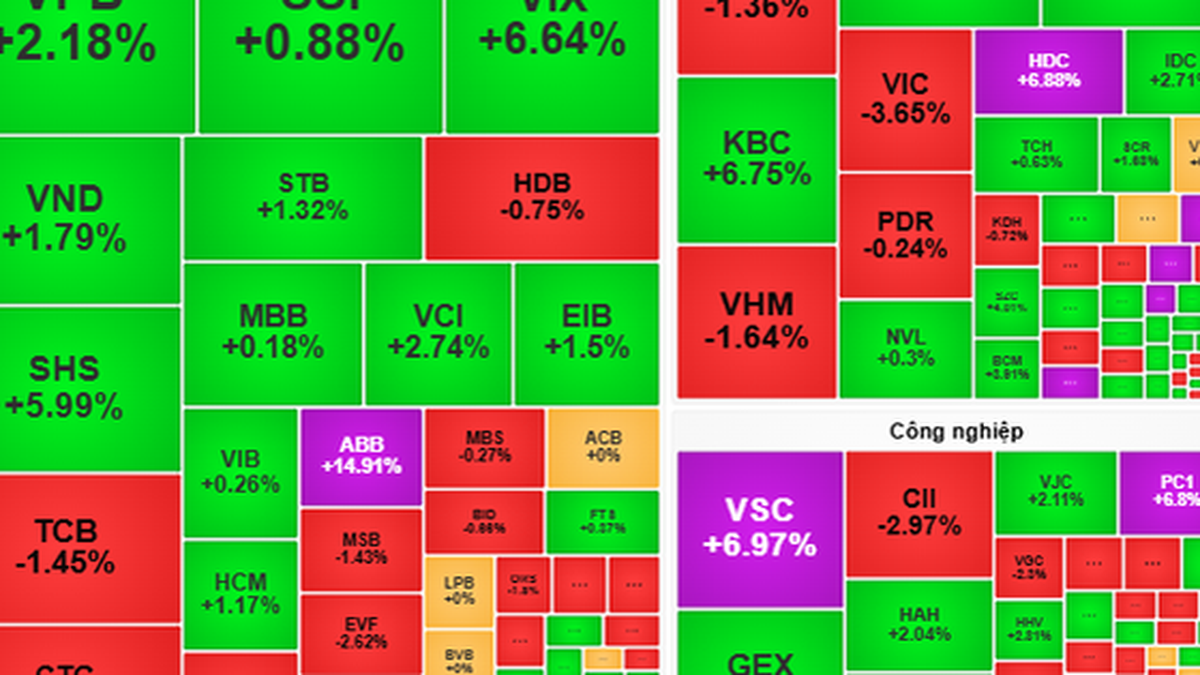
Tens of thousands of stores have left major e-commerce platforms such as Shopee, Lazada, Tiki and TikTok Shop because there have been no orders for a long time.
This shows that e-commerce platforms are no longer a "promised land" for sellers if they cannot maintain consumer trust and business transparency.
Pressure surrounds small retailers
According to the online retail market report for the first 6 months of 2025 and forecast for the third quarter of 2025 by Metric.vn (an E-commerce data analysis platform in Vietnam) based on data analysis of 4 major e-commerce platforms: Shopee, Lazada, Tiki and TikTok Shop, as of the first quarter of 2025, there are only 472,500 online shops in operation, down 7.45% over the same period.
The number of shops generating orders also dropped sharply, about 38,000 shops compared to the same period last year. This shows that the market is entering a clear phase of purification, only professional sellers with a foundation and long-term strategy can attract customers.
According to Mr. Tran Lam, e-commerce expert and founder of the Julyhouse & Macaland brand, it is understandable that many small retailers are leaving the game as they are facing many difficulties.
First of all, small retailers face the risk of selling goods of unknown origin, because most of them buy and resell, not caring about getting invoices and documents for input goods.
In addition, operating costs, from selling fees on the floor, advertising costs increase continuously, forcing small retailers with insufficient potential to stop.
"Since the beginning of the year, the cost of renting a platform has increased continuously, from platform fees, commissions, advertising, logistics to return and complaint costs, currently 10% higher than last year. If calculated correctly and fully, the cost of operating the platform alone accounts for more than 20% of the product cost, not to mention advertising costs. High costs, eroded profit margins, forcing small retailers to leave the platform," Mr. Lam emphasized.

Ms. Nguyen Thi Lan, owner of a children's clothing shop operating on both Shopee and TikTok Shop, shared about her decision to stop selling on the platform after 3 years: "I have been selling online since the end of 2021, at that time orders were steady, income was stable. But later, advertising costs and platform costs increased, but revenue decreased. Last May, I decided to temporarily stop selling on the platform to recalculate."
As a branded retailer, even Non Son is struggling due to rising sales costs. Mr. Nguyen Ngoc Ty, CEO of Non Son Fashion Limited Liability Company, said: "Doing business on e-commerce platforms brings many benefits, accounting for 50% of my company's total revenue. However, e-commerce platforms increase prices continuously, sometimes 2-3 times a year. We sell a lot, have high revenue, but the profit margin is very low, even businesses with a foundation like ours find it difficult."
Commenting on the wave of withdrawals from e-commerce platforms in the first 6 months of the year, Mr. Ty said that the market is no longer a "promised land" for sellers who lack strategy, do not know how to use data or optimize costs, especially "impulsive" investors who do and earn short-term profits without a systematic investment strategy like well-known brands with a foundation.
E-commerce experts also analyzed that the decline in the number of sellers is not a negative signal about the appeal of e-commerce, but is the result of a natural selection process, when buyers increasingly value prestige, quality, and prefer genuine, branded stores with professional operating capacity.
Metric.vn's research also shows that genuine stores are firmly positioned in the market, although their proportion is very small, only 3%, but they account for nearly 30% of the total market revenue.
Transparency of operations on e-commerce platforms
It can be said that the "escape" of small retailers is an opportunity for those who are still standing firm on the floor.
According to Mr. Nguyen Ngoc Ty, CEO of Non Son Fashion Company Limited, the withdrawal of seasonal shops will create conditions for genuine stores to do better business by continuing to focus on core values.

Along with transparency in product origin, product quality control, and constant innovation, these businesses must also have an attractive, methodical after-sales strategy and professional customer care to attract buyers.
However, Mr. Ty suggested: "There needs to be a mechanism to control the collection of operating fees on the platform, because currently this fee is floating, if it continues to increase continuously, it will be very difficult for businesses. In addition, we hope that e-commerce platforms need to set specific criteria to review seller profiles on the platform, that profile must ensure sufficient conditions for a seller, limit licensing for sellers who violate intellectual property with genuine products, ensure fair competition for businesses and sellers on the platform".
According to Mr. Vo Thanh My, CEO of Navee Joint Stock Company, Head of the Southern Digital Media Association, Vietnam is witnessing a very fast digitalization speed in commerce, but along with that comes pressure on quality control of both goods and user experience quality. That shows that there is a gap between "putting products on the floor" and "building a reliable and consistent consumer experience". If this issue is not thoroughly addressed, Vietnam's e-commerce will find it difficult to maintain a sustainable growth rate.
"E-commerce platforms are playing the role of "rule setters" in the digital ecosystem, but to maximize their advantages, they need to invest more heavily in quality control systems, not only in product inspection, but also in product distribution algorithms, seller credit ratings, and especially transparent complaint handling. In addition, platforms need to upgrade their role from "a place of transaction" to "a place to sponsor digital experiences," ensuring fairness between all parties: sellers, consumers, and related third parties (logistics, payments, etc.). E-commerce is not just a price race, but a race of trust and sustainability," Mr. My emphasized.

Sharing the same view, Mr. Tran Lam, e-commerce expert and founder of the Julyhouse & Macaland brand, said that those who leave are opportunities for those who stay, but it is not easy to fill these "gaps", because sellers are also under great pressure from operating costs on the floor.
"Stable sellers must not only solve the problem of input costs, to structure appropriate prices, but also have to be precise in complying with business conditions on input and output. However, if we do business transparently, healthily, without using tricks, sellers with a foundation and resources will quickly gain the trust of the market. Thus, it is also an opportunity for genuine sellers to accelerate and achieve better business results," said Mr. Lam.
According to research by Metric.vn, in the first 6 months of 2025, total sales through four major e-commerce platforms in Vietnam including Shopee, Lazada, Tiki and TikTok Shop reached 202,300 billion VND (equivalent to approx. 7.8 billion USD ), up nearly 42% over the same period last year.
Sales volume also increased by more than 25%, equivalent to 1.9 million products. Entering the third quarter, Metric.vn forecasts that total e-commerce revenue will reach nearly 123,000 billion VND , up more than 20% compared to the second quarter, with much room for growth from the market.
However, if e-commerce platforms cannot solve the bottlenecks, it will be difficult to fully exploit the market potential.
Source: https://baoquangninh.vn/thuong-mai-dien-tu-buoc-vao-giai-doan-loc-nguoi-choi-3369378.html





































































































Comment (0)